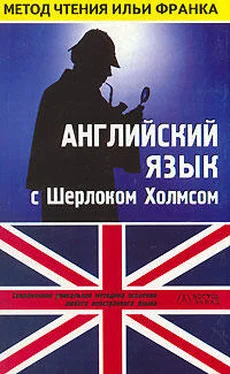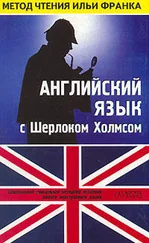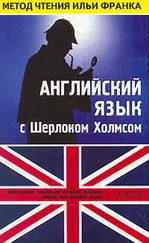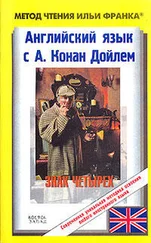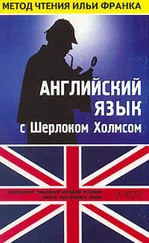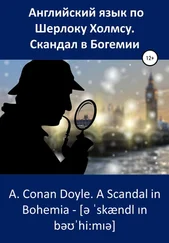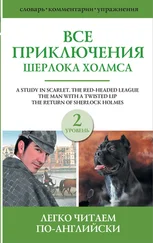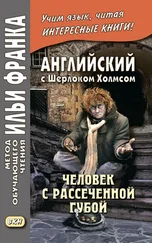presented [prɪˈsentɪd], daring [ˈdeǝrɪŋ], effort [ˈefǝt], imagination [ɪˌmæʤɪˈneɪʃn]
"Your cases have indeed been of the greatest interest to me," I observed.
"You will remember that I remarked the other day, just before we went into the very simple problem presented by Miss Mary Sutherland, that for strange effects and extraordinary combinations we must go to life itself, which is always far more daring than any effort of the imagination."
"A proposition which I took the liberty of doubting (я ответил, что позволяю себе усомниться /в этом/: «заявление, которым я позволил себе усомниться»; to take the liberty of — позволять себе) ."
proposition [prɒpǝˈzɪʃn], liberty [ˈlɪbǝtɪ], doubting [ˈdautɪŋ]
"You did, Doctor (вы сделали, доктор = так и сказали) , but none the less (но, тем не менее) you must come round to my view (вы должны согласиться с моим мнением; to come round — идти на уступки, менять свое мнение) , for otherwise I shall keep on piling fact upon fact on you (ибо иначе = в противном случае я продолжу обрушивать множество фактов: «складывание в кучу факта за фактом» на вас; to pile — складывать в кучу, в кипу) until your reason breaks down under them (до тех пор, пока ваш разум не обрушится под ними = найдет их убедительными) and acknowledges me to be right (и признает меня правым = что я прав) . Now, Mr. Jabez Wilson here has been good enough to call upon me this morning (ну = вот, например, мистер Джабез Уилсон /здесь/ был достаточно любезен = так любезен, чтобы обратиться ко мне этим утром) , and to begin a narrative (и начать рассказ) which promises to be one of the most singular (который обещает быть одной из самых необычайных /историй/) which I have listened to for some time (которые я слышал за последнее время: «в течение некоторого времени») . You have heard me remark (вы слышали, как я заметил) that the strangest and most unique things are very often connected (что самые странные и наиболее своеобразные вещи очень часто связаны) not with the larger but with the smaller crimes (не с крупными, а с мелкими преступлениями; larger — больший, больше; smaller — меньший, меньше) , and occasionally, indeed (и порою, действительно) , are those where there is room for doubt whether any positive crime has been committed (это те /вещи/, где есть место для сомнения, было ли совершено явное преступление; whether = if — если) . As far as I have heard (насколько я слышал: «как далеко») it is impossible for me to say (для меня невозможно сказать = не могу сказать) whether the present case is an instance of crime or not (является ли настоящий = данный случай примером преступления или нет; instance — пример, вариант) , but the course of events is certainly among the most singular that I have ever listened to (но ход событий определенно из числа наиболее необычайных = своеобразных, которые я когда-либо слышал) . Perhaps, Mr. Wilson, you would have the great kindness to recommence your narrative (возможно, мистер Уилсон, вы соблаговолите = я попрошу начать вновь ваш рассказ; great kindness — большое одолжение) . I ask you not merely because my friend Dr. Watson has not heard the opening part (я прошу вас /сделать это/ не только потому, что мой друг доктор Ватсон не слышал вступительную часть) but also because the peculiar nature of the story (но также потому, что специфическая природа этой истории) makes me anxious to have every possible detail from your lips (делает меня беспокойным = мне самому не терпится услышать каждую возможную = малейшую деталь из ваших уст; lips — губы, уста) . As a rule (как правило) , when I have heard some slight indication of the course of events (когда я услышу незначительный признак хода событий = едва мне начинают рассказывать какое-либо дело) , I am able to guide myself by the thousands of other similar cases (я могу руководствоваться: «направлять себя» тысячами других подобных дел) which occur to my memory (которые приходят мне на память) . In the present instance I am forced to admit (в настоящем примере я вынужден признать) that the facts are to the best of my belief, unique (что факты, насколько я могу оценить, уникальны) ."
piling [ˈpaɪlɪŋ], acknowledges [ǝkˈnɒlɪʤɪz], unique [ju:ˈni:k], occasionally [ǝˈkeɪʒnǝlɪ]
"A proposition which I took the liberty of doubting."
"You did, Doctor, but none the less you must come round to my view, for otherwise I shall keep on piling fact upon fact on you until your reason breaks down under them and acknowledges me to be right. Now, Mr. Jabez Wilson here has been good enough to call upon me this morning, and to begin a narrative which promises to be one of the most singular which I have listened to for some time. You have heard me remark that the strangest and most unique things are very often connected not with the larger but with the smaller crimes, and occasionally, indeed, are those where there is room for doubt whether any positive crime has been committed. As far as I have heard it is impossible for me to say whether the present case is an instance of crime or not, but the course of events is certainly among the most singular that I have ever listened to. Perhaps, Mr. Wilson, you would have the great kindness to recommence your narrative. I ask you not merely because my friend Dr. Watson has not heard the opening part but also because the peculiar nature of the story makes me anxious to have every possible detail from your lips. As a rule, when I have heard some slight indication of the course of events, I am able to guide myself by the thousands of other similar cases which occur to my memory. In the present instance I am forced to admit that the facts are, to the best of my belief, unique."
The portly client puffed out his chest (полный/тучный клиент выпятил свою грудь) with an appearance of some little pride (с видом некоторой гордости) and pulled a dirty and wrinkled newspaper from the inside pocket of his greatcoat (и вытащил грязную и скомканную газету из внутреннего кармана пальто; newspaper: news — новости, paper — бумага) . As he glanced down the advertisement column (пока он пробегал глазами рекламную колонку; advertisement — реклама) , with his head thrust forward and the paper flattened out upon his knee (с вытянутой вперед головой = шеей и газетой, выровненной на коленях) , I took a good look at the man and endeavored (я внимательно разглядывал его: «взял хороший взгляд» и попытался) , after the fashion of my companion (подражая моему товарищу; after the fashion of — наподобие, по методу) , to read the indications which might be presented by his dress or appearance (прочитать знаки, которые могли быть представлены его одеждой и внешностью) .
Читать дальше
